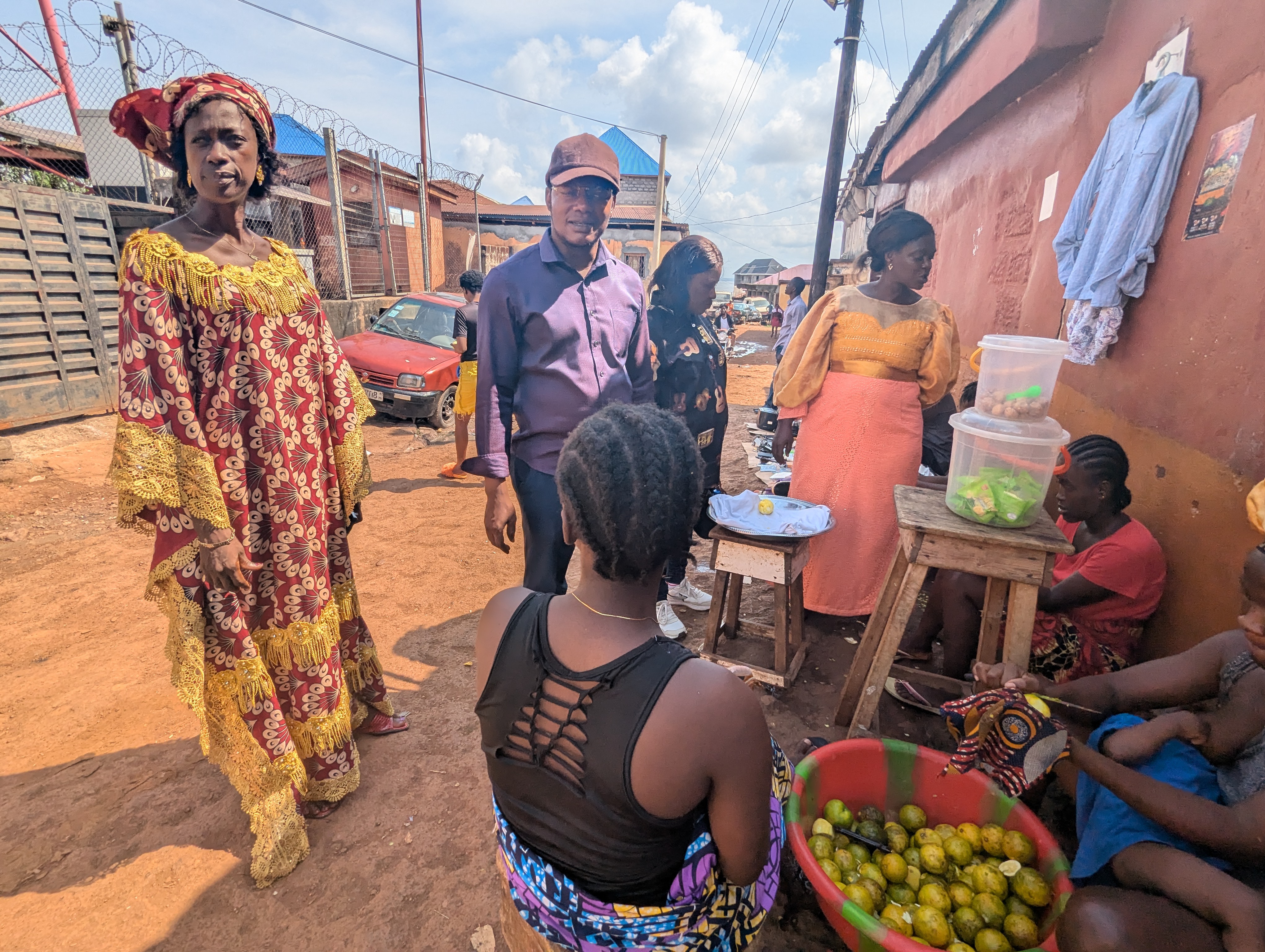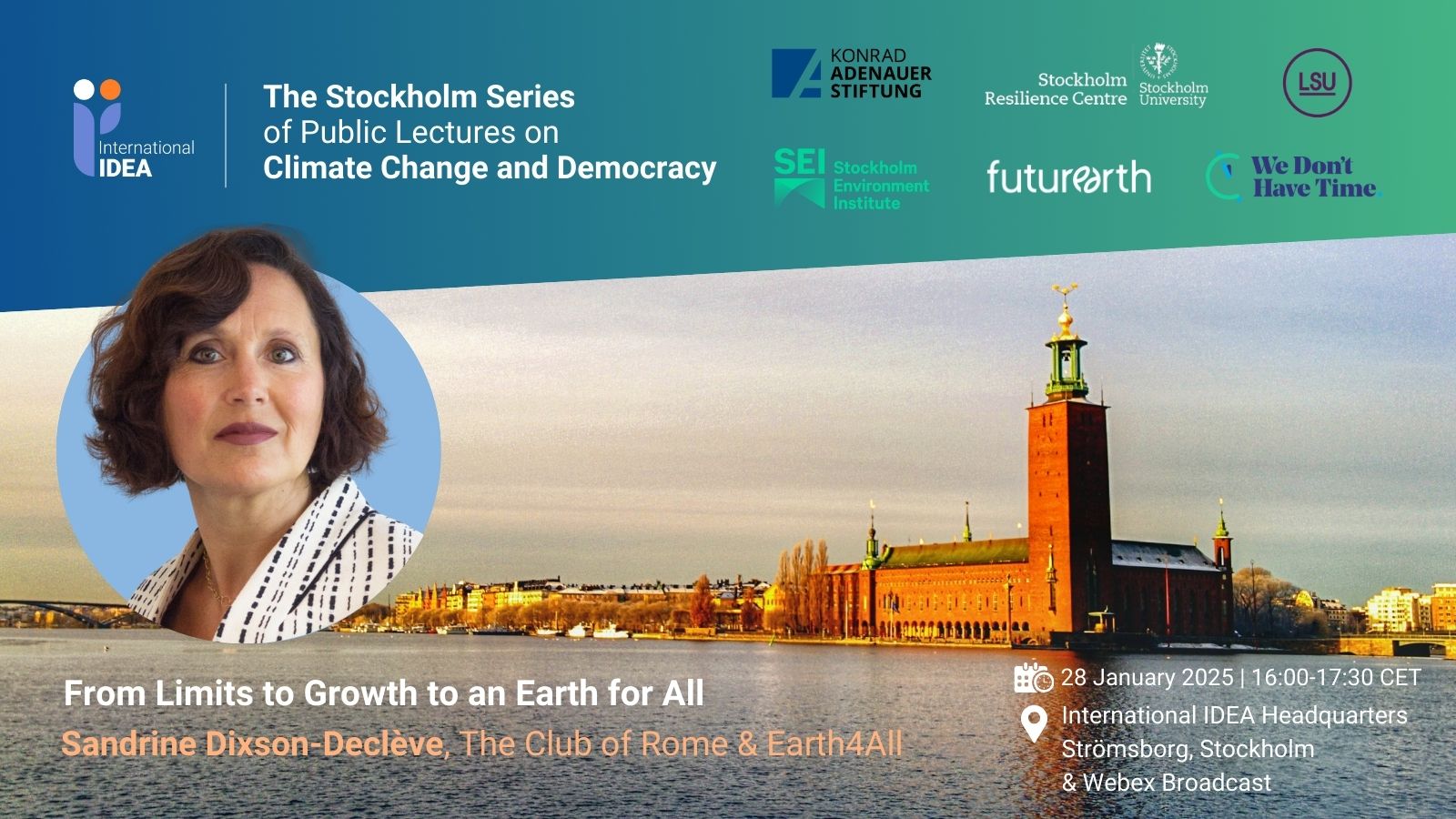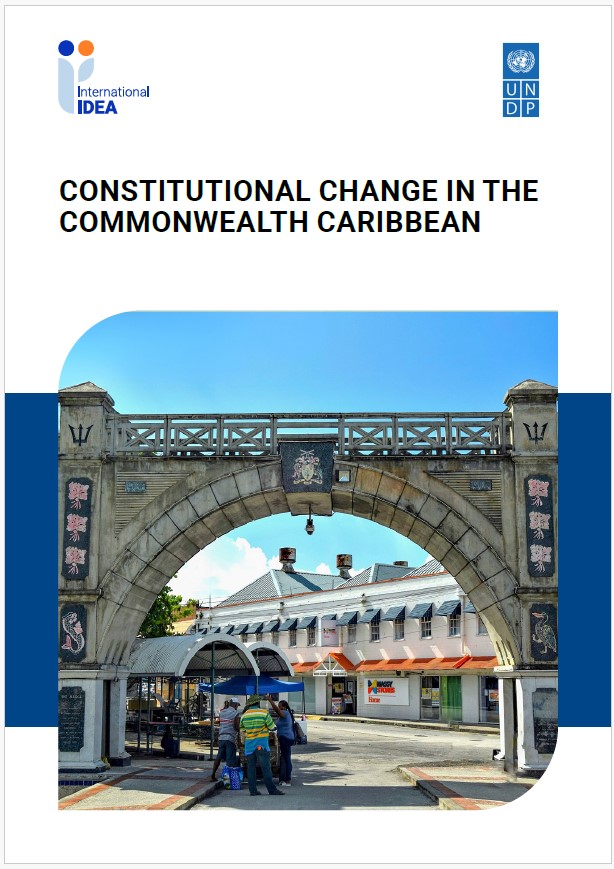International IDEA published the Agenda of Proposals for Public Politics (APPP) in 2018, a vision for national development in Bolivia guided by the issues that challenge and motivate the younger generations. The Agenda was crafted with the support of over 200 youth organizations across the country, and it contains 42 proposals.
Search
Region
Country
Type
En 2017 y 2018, IDEA Internacional impulsó, con el apoyo de la Embajada de Suecia, un proceso de articulación de diversas organizaciones juveniles de Bolivia para la elaboración de una Agenda de Propuestas de Políticas Públicas (APPP), un conjunto de planteamientos relacionados con las grandes problemáticas nacionales, sustentada en las visiones de las generaciones más jóvenes.
Aclaración: Las opiniones expresadas en este artículo son exclusivas de su autor e independientes de intereses nacionales o políticos particulares. Además, estas opiniones no representan necesariamente la posición institucional de IDEA Internacional, su Junta de Asesores o su Consejo de Estados Miembros.
This commentary is available in English.
Disclaimer: Views expressed in this commentary are those of the staff member. This commentary is independent of specific national or political interests. Views expressed do not necessarily represent the institutional position of International IDEA, its Board of Advisers or its Council of Member States.
The International Institute for Democracy and Electoral Assistance (International IDEA) and the United Nations Office on Drugs and Crime (UNODC) signed a memorandum of understanding to work closely together to address risks of new financial instruments such as cryptocurrencies in political finance.
In the Gambia, significant political reforms are taking place, in an atmosphere of dialogue.
Dialogue is a process that helps stakeholders voice their interests and opinions in a non-violent way. There is no guarantee that stakeholders engaged in dialogue will reach agreement on divisive issues, but simply engaging in dialogue with each other may increase respect between participants and build a sense of inclusion over time, allowing for changes needed to create sustainable peace.
The health of a democracy can be measured from the engagement of its citizenship. In Bhutan, this wisdom is well received because it is traditionally accepted that citizens have to contribute towards the welfare of the communities and the society they live in. Previously, this contribution took varied forms, including active and regulated voluntary services.
Global challenges are growing considerably and there is a pressing need for all key actors to get together and coordinate actions that can guarantee that we all tackle issues related to democracy, good governance and sustainable development in the best possible way.
Nepal held local elections in 2017 for the first time in almost 20 years – a critical step set out in the 2015 Nepalese constitution for the implementation of the federal system. For the first time in Nepal, a quota system ensured seats for over 40% women and representation of marginalised communities in the 753 local governments of Nepal. In many cases, however, representation tended to remain cosmetic because of deep-
يوفر هذا الدليل منهجية تمكن مؤسسات المجتمع المدني العاملة في مجال المراقبة الانتخابية في المنطقة العربية من إصدار تقاريرها بطريقة مبنية على منهج علمي بعيدة عن التحاليل والانطباعات الشخصية أو غير الموضوعية.
Myanmar held credible national elections in 2015 and has followed up with well-run by-elections in 2017 and 2018. But despite these achievements at the national and state/region level, Myanmar has never held a municipal election with universal suffrage. Until 31 March that is.
The International Institute for Democracy and Electoral Assistance’s (International IDEA) Council of Member States has selected Dr Kevin Casas-Zamora as the Institute’s new Secretary-General.
ESTOCOLMO – El Consejo de Estados Miembros del Instituto Internacional para la Democracia y la Asistencia Electoral (IDEA Internacional) ha seleccionado al Dr. Kevin Casas-Zamora como nuevo Secretario-General del Instituto.
El Dr. Casas-Zamora, originario de Costa Rica, comenzará su mandato de 5 años el 1 de Agosto de 2019.
El pasado 3 de junio de 2019, IDEA Internacional y PNUD generaron un importante espacio de dialogo en torno a las cuotas de género en Chile, a través de la realización del Seminario “Ley de cuotas de género en las elecciones de gobernadores y consejeros regionales, alcaldes y concejales”, que se llevó a cabo en la Sala de Lectura de la Cámara de Diputados del Ex Congreso Nacional.
International IDEA and the UNDP created an important forum on 3 June 2019 for discussing gender quotas in Chile by holding the seminar “Law on gender quotas in the elections for regional governors and council members, mayors, and local council members.” The event was held in the Reading Room of the Chamber of Deputies in the former National Congress.
The Seminar on the 2019 Argentine Elections was held in Buenos Aires on 11 March 2019, at the headquarters of the Argentina Council on Foreign Relations (CARI: Consejo Argentino para las Relaciones Internacionales).
Este artículo está disponible en Español.
Disclaimer: Views expressed in this commentary are those of the staff member. This commentary is independent of specific national or political interests. Views expressed do not necessarily represent the institutional position of International IDEA, its Board of Advisers or its Council of Member States.
El pasado 11 de marzo, en la sede del Consejo Argentino para las Relaciones Internacionales (CARI), en Buenos Aires, se llevó a cabo el Seminario sobre las elecciones argentinas 2019.


